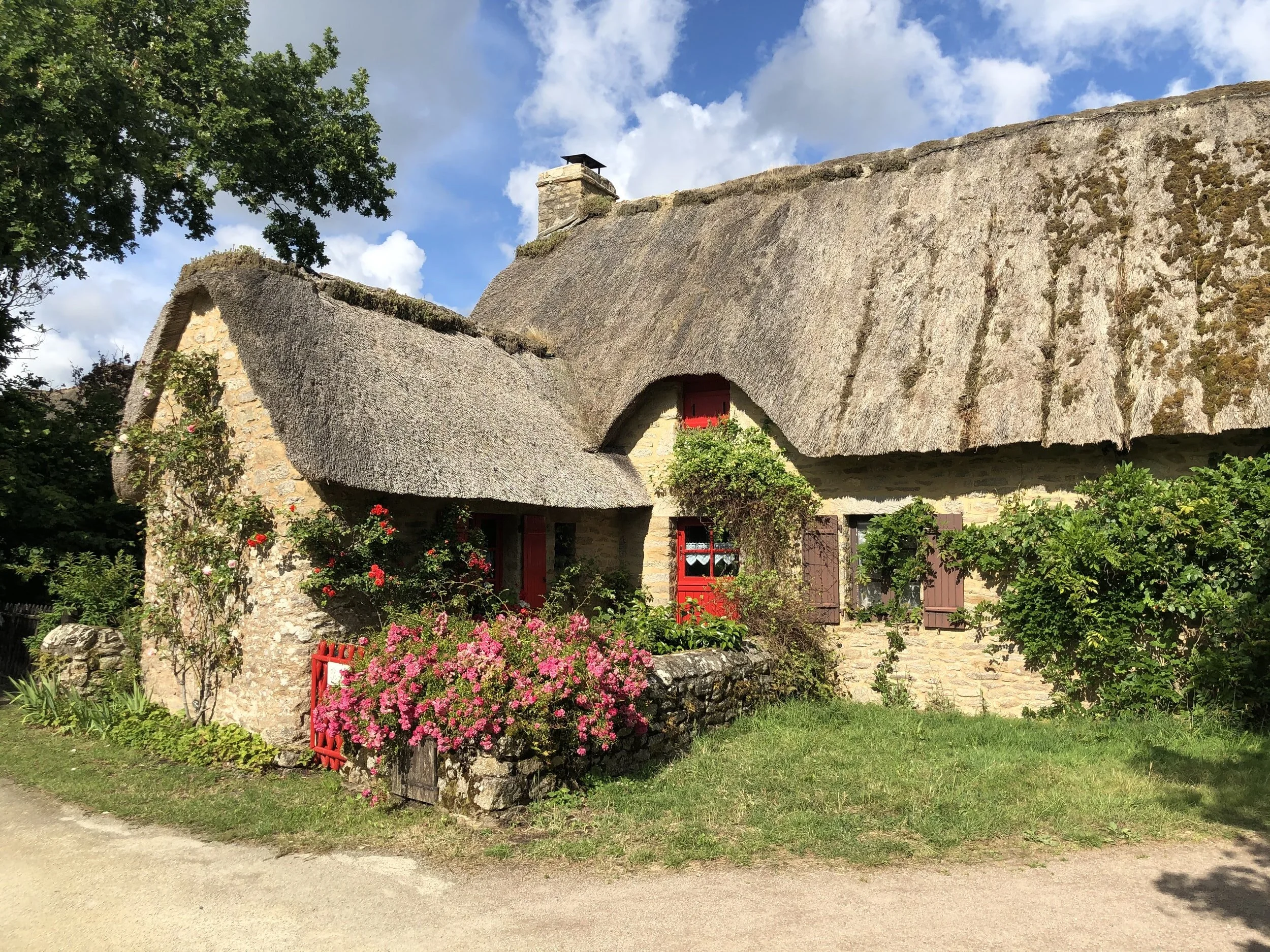Why Don’t We Trust Others
What can we learn from a role-playing game about trusting others and ourselves
Can our experiences in Dungeons and Dragons help us to trust others?
Haggard from adventuring, your party is walking through the forest and at a clearing, comes across a little wooden cottage. Low on supplies, you inquire at the door and are greeted by a withered old lady. She greets you with a broad smile and a comforting voice, offering you warm food and a place to rest from your harrowing journey.
While she has nothing in her tone or demeanor that seems dishonorable, you are immediately on guard. You’ve read enough fairy tales or played enough role-playing games. You know this could be a witch or some wicked being in disguise.
Perhaps she is, and your mistrust is well placed, or perhaps not. But typically, we don’t hesitate and immediately turn to distrust.
Real-life is not all that different from a role-playing game. By the time we become adults, we have had a variety of experiences with others, both positive and negative, and most of us have lost those rose-colored glasses of our youth. Many of us will become immediately distrustful when faced with kindness and positivity, especially from a stranger.
But why is it so hard to trust people?
Reasons we don’t trust others
Our past experiences, values, and beliefs all influence the level of trust we extend to others. If people have been dishonest with us in the past, we are more likely to distrust others moving forward. But the reason can be deeper than just past our experience.
What loneliness is more lonely than distrust?
- George Eliot
Our Value System
Some people have a disposition towards being wary of others based on their belief system. A common one is that trust is earned and not given. This belief may be a result of being hurt in the past or from values acquired during childhood. People with this belief will withhold trust from others and then only extend it in small amounts until they are fully confident that the recipient is worthy of it.
While this is often seen as an intelligent viewpoint, the danger is when we find ourselves on the other side of that equation. Regardless of our intentions, we will initially not be seen as trustworthy by someone who believes this.
Trust breeds trust. If we feel that the other side does not trust us, we are naturally more wary of them. And both sides will see the other as untrustworthy. This feedback loop makes building any meaningful relationship with others much more difficult.
“He who does not trust enough will not be trusted.”
- Lao Tzo
Lack of Communication
We typically are more likely to trust those we know than strangers. But clear communication is the key. We need it to learn about each other and understand each side’s wants and needs. This is how we build trust.
And unfortunately, far too often, we are unclear in our expectations or set them unrealistically. Without understanding, the other person either unwittingly or is unable to meet the view that we set for them. With this disappointment, we lose trust even though it was not intentional and could have been avoided.
Similarly, a lack of communication also breeds distrust. We need to have regular contact to build a relationship and “check-in” with each other. In business, a manager who regularly takes the time to speak to employees is often seen as more trustworthy than the one who spends most of the day in a closed office. We hesitate to trust someone we have only had a few words with.
“Trust is very hard if you don’t know what you’re trusting.”
– Marianne Williamson
Their Words and Actions Don’t Align
Another reason that we don’t trust someone is when they do one thing and do another. It can be a situation where someone is clearly lying, the con artist or thief. But typically, it’s less malicious, though maybe just as harmful.
A co-worker that never finishes their work on schedule, even after agreeing to the deadline. A manager says they trust their staff but micromanages the team. Or a friend that says they will always be there for you but never answers your calls.
As their actions do not align with their words, we feel that we can’t trust them to act as they say they will. And our trust in them erodes with the passing time. (Read about how toxic positivity can erode trust in What’s the Problem with Positivity?)
“Men trust their ears less than their eyes.”
- Herodotus
Inconsistency
Trust is built on predictability. If we know what we can expect from someone in the future, we feel more comfortable in the present. Biologically, when we can predict a situation, it is less stressful and causes less anxiety. And it allows us to focus our energy on other activities instead of spending it on trying to predict what will happen next.
We learn their habits and build trust accordingly. Someone that is always on time may value punctuality, and we trust that they will not be late for our meeting. Even if we don’t agree with someone, we can trust in their consistency.
But this goes beyond just habits. Do they live their values? We would expect someone that says that they believe in protecting the environment to have habits that support this. But if we watched them throw an empty soda can on the ground while hiking without a second glance, we would think twice about their word.
Similarly, do they treat others according to their values? If our boss wants in-person offices, we would think differently about them if they themselves only were willing to work remotely. A friend that supports diversity would shock us if we heard them using racial slurs.
We Don’t Trust Ourselves
Since trust is reciprocal, what happens if you project feelings that you are not worthy of trust?
When we struggle with low self-esteem, we may have self-defeating thoughts that we are unworthy of love or trust. And through our behavior, we may project these feelings towards others, thereby guaranteeing the negative reaction from them that we feared.
To trust others, we need first to trust ourselves. (Read about how we deceive ourselves and others in RPG Mimics and Why We Deceive Others)
“Self-trust is the essence of heroism”
- Ralph Waldo Emerson
Are We Seen as Trustworthy to Others?
If trust breeds trust, others must be able to trust us if we are to trust them.
Do you communicate your expectations, responsibilities, and roles clearly with others?
Are you available to other people to build relationships and trust?
Do you know what your values are? How do you communicate them to others?
Are you consistent, or do you flip flop on decisions?
Do your circumstances or values determine your actions?
Do you believe in yourself?
“The people when rightly and fully trusted will return the trust”
- Abraham Lincoln
Allowing Ourselves to Trust
Being hurt in the past and disappointed by others, many of us struggle with trust. But depriving others of it keeps us from building meaningful relationships with others. What are some strategies to help us regain the ability to trust others?
Be aware of your thoughts
If you find yourself weary of someone, try to figure out why? Is it a predetermined bias or a real reason in the present? What about the situation has you thinking twice? Allow yourself to observe the situation as an outsider to help get out of your head.
“You must trust and believe in people or life becomes impossible.”
- Anton Chekhov
Leave your past behind
We have a lifetime of experiences that influences our thoughts and behaviors. When meeting someone new, we greet them through the dirty lenses of our past. Try to see them as someone new and for themselves, instead of comparing them to someone else in your past.
Give it time
Especially after being hurt, it can take time to rebuild the ability to trust others. Understand that it can take time. Let go of the need for instant gratification and give the process the time needed to build trust naturally.
“All the world is made of faith, and trust, and pixie dust.”
― J.M. Barrie, Peter Pan
Be willing to give a little
Trust is a two-way street. To be trusted ourselves, we must be willing to trust the other person.
Give them the benefit of the doubt and start the process. It can start on small things at first and progress through baby steps. But be willing to be the one that extends your trust first.
“The best way to find out if you can trust somebody is to trust them.”
- Ernest Hemingway
Set clear expectations
If we know what to expect from one another, we can together work towards those goals and avoid unnecessary disappointment. Both parties need clear communication to make sure the other understands expectations and roles.
Practice Forgiveness
Remember that none of us is perfect. There will be times when people will break your trust in the future. Learn from it and move on. But it doesn’t have to be the end of trusting others.
This includes forgiving yourself for letting others down or being less than perfect in the past. We are flawed individuals and make mistakes.
We’re paying the highest tribute you can pay a man. We trust him to do right. It’s that simple.
- Harper Lee, To Kill a Mockingbird
Believe in yourself
Trust yourself that you are worthy of trust from others. Know that you will do the right thing and believe in your inherent goodness. (Read more about gaining self-confidence in X-Men and the Power of Being True to Yourself.)
Trust is critical to healthy relationships. We need to let others into our lives to help us and be a part of our lives. And we need others to believe in us and support us on our journey.
Back in your RPG:
Before you roll for initiative for that woman in the woods, talk to her, get to know her, and observe her actions. Maybe she is a wicked witch, and your mistrust is well placed.
Or perhaps she is the kindly widow of a woodsman, eager for the company to ease her lonely days. And her offer is truly without malice, and your party could definitely use a warm meal and a safe place for a long rest.
Author:
Laurie Trueblood is a writer and life coach that enjoys fantasy, science, psychology, and everything nerdy. As the founder of Adventures to Authenticity, her mission is to help others level up and become the best versions of themselves.
Read more articles on trust: D&D and Disabilities - My Quest for Trust in the Dark and RPG Mimics and Why We Deceive Others








